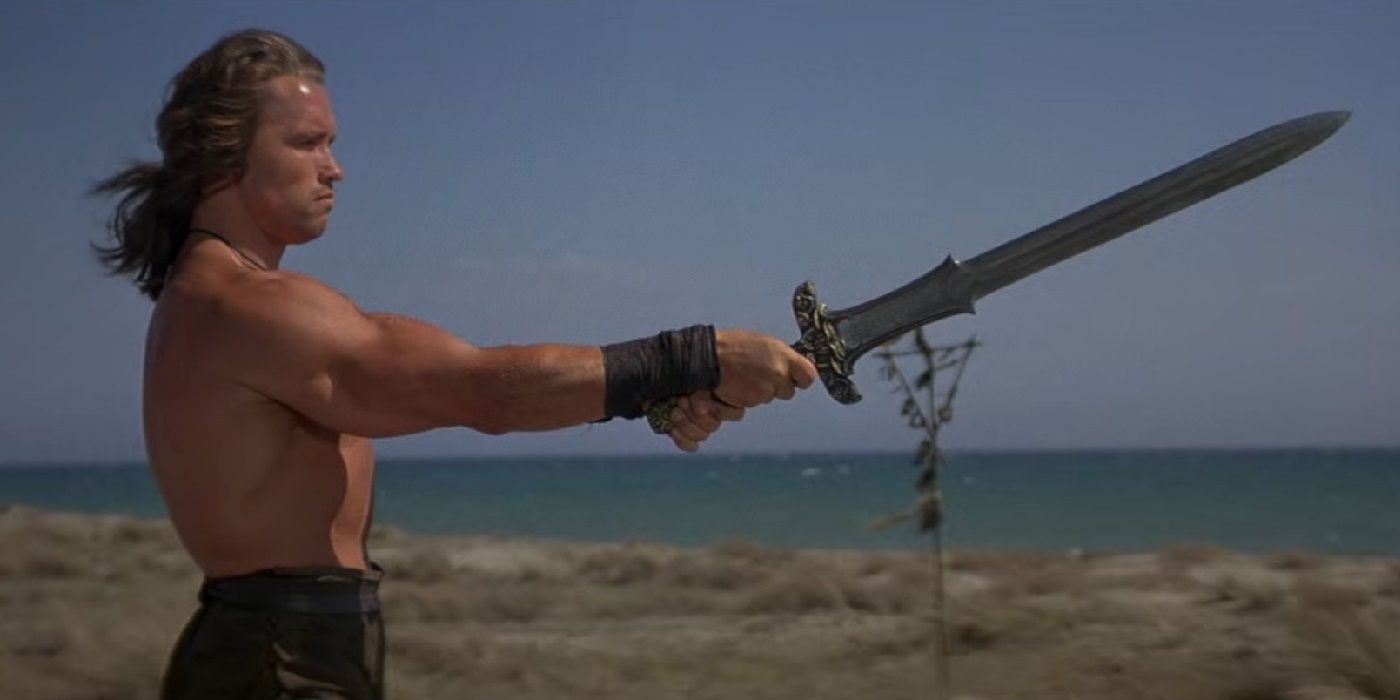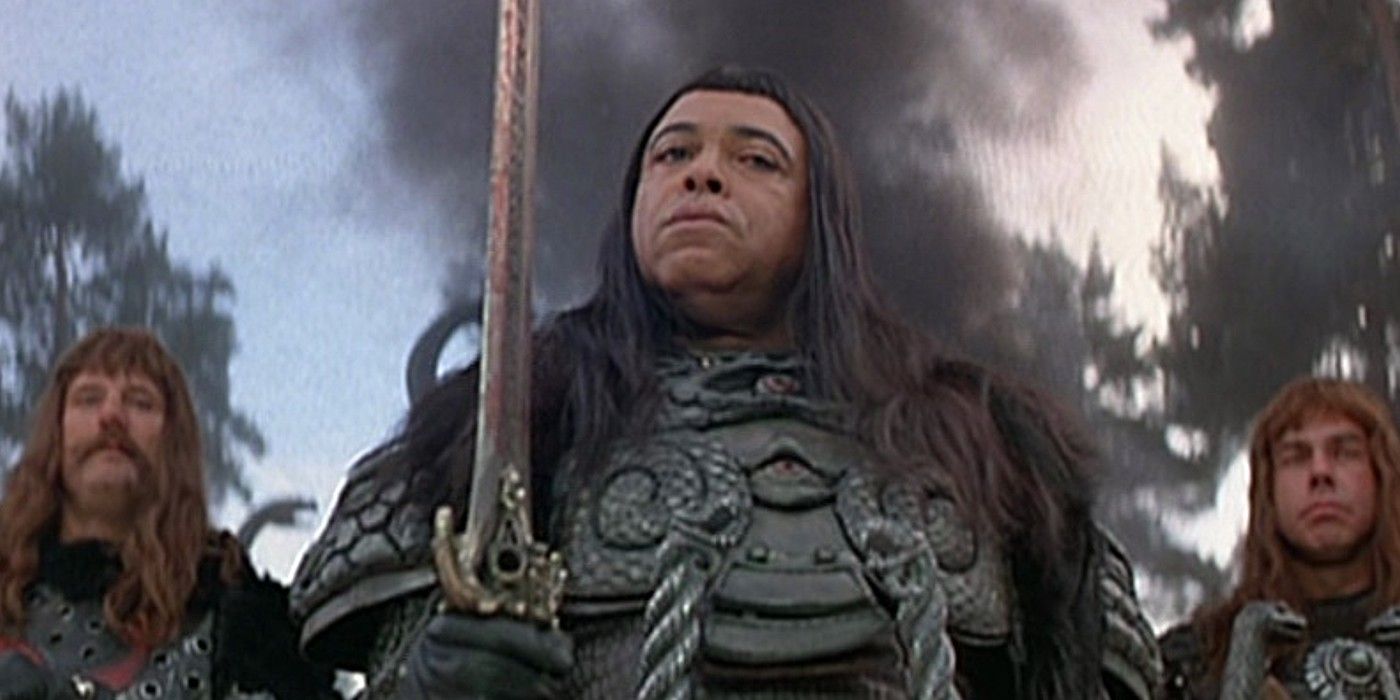1982's Conan the Barbarian was a surprise hit for Universal Pictures, putting star Arnold Schwarzenegger on the map and launching a wave of swords-and-sorcery movies throughout the 1980s. Even more impressive, it's gone on to become a fantasy classic, with Schwarzenegger periodically lobbying director John Milius to make another sequel with him. The same can't be said for most of the swords-and-sorcery movies that followed it. The sub-genre was a shabby one, to begin with, with quality taking a sharp dip in the wake of Conan the Barbarian's success.
But the ultimate failure of the sub-genre lies less in the quality of the product than in the lessons Hollywood took from Conan. They proved not only wrong but utterly oblivious to the roiling changes in the industry. In the simplest terms, while Conan the Barbarian made money, the powers that be felt it didn't make enough money and altered subsequent efforts accordingly. It all but killed the swords-and-sorcery genre before the decade was out.
Conan the Barbarian Was an R-Rated Fantasy
Fantasy movies increased in prominence following the massive success of Star Wars: Episode VI - A New Hope, as advancements in special effects made it easier to produce the kind of spectacle audiences expected. That included adult-oriented efforts like 1981's Excalibur, a high-minded -- and R-rated -- retelling of the King Arthur legend. Conan the Barbarian was more adolescent, based on the pulp stories of author Robert E. Howard rather than something with the literary pedigree of Arthur. But Howard's work held a Darwinian brutality that Milius successfully transferred to the big screen. Conan the Barbarian depicts a pitiless world where the strong prey on the weak, with the heroes discovering something akin to a moral compass only through long and terrible trials.
It became a big hit -- grossing over $70 million on a $20 million budget -- and strangely enough, it wasn't the only R-rated swords-and-sorcery movie to make money that year. Though far less well-regarded (it stinks), The Sword and the Sorcerer pulled in almost $40 million on a $4 million budget while embracing the same kind of hard-R content as Conan the Barbarian. That helped the swords-and-sorcery genre stand out from more family-oriented fantasy films of the era, such as Dragonslayer and Krull, as well as certifying Conan the Barbarian's serious-as-a-heart-attack approach.
Hollywood Decided That the Swords-and-Sorcery Genre Was for Kids
And yet the principal lesson Hollywood appeared to take from the movie was that it would have made even more money if it were kid-friendly. The most obvious example comes with the sequel, Conan the Destroyer, which arrived two years later. Milius was replaced by Richard Fleischer behind the camera: a veteran of Hollywood's Golden Age and director of such family-friendly fantasies as 20,000 Leagues Under the Sea and Fantastic Voyage. Howard's world lost some of its brutality in the process, replaced by a PG rating and a more fairy-tale atmosphere, along with actively comedic characters like Tracey Walter's thief Malak. Despite a higher budget, it grossed less than half of the first film and effectively ended Schwarzenegger's association with the character. (The less said about the 2011 Jason Momoa version, the better.)
Similar efforts followed suit, ranging from 1983's Hercules starring Lou Ferrigno to 1985's Red Sonja, which Fleischer also directed. They bombed as well, and by the time 1987's disastrous Masters of the Universe arrived, the trend had just about run its course. In the midst of it all, the home video revolution fundamentally shifted the game. The tweeners and teens who couldn't see Conan the Barbarian in theaters could watch the R-rated mayhem on home video and see what they were missing. Removing the genre's harsher edges left nothing but louder, sillier versions of family-friendly fantasies. In trying to broaden the genre's audience, Hollywood turned away the very audience it was trying to reach.
It goes beyond R-rated content. Milius centered his world around a constant battle for survival, then showed his protagonists haltingly rising above it. That requires more than bare breasts and bloodletting to achieve, even without turning it all into a Saturday matinee. Schwarzenegger, at least, understands the problem, which is why he periodically hounds Milius to come back to the character. None of the other directors at the time grasped the subgenre's appeal the way he did. Conan the Barbarian is a classic for the same reason the rest of the genre isn't: the people making the decisions completely misread the room.



.jpg)